Understanding Pulpitis: Symptoms, Types, and Treatments at Lakefront Family Dentistry
Pulpitis is a common dental condition that can cause significant discomfort and affect your overall oral health.
At Lakefront Family Dentistry, led by the experienced Dr. Derek Hauser and Dr. Mark Phillipe, we provide comprehensive care for patients experiencing symptoms and treatment for certain types of pulpitis.
What is Pulpitis?
Pulpitis is an inflammation of the dental pulp, the innermost part of the tooth that contains nerves, blood vessels, and connective tissue. It can be categorized into two main types: reversible and irreversible pulpitis, each with distinct implications for treatment and prognosis.
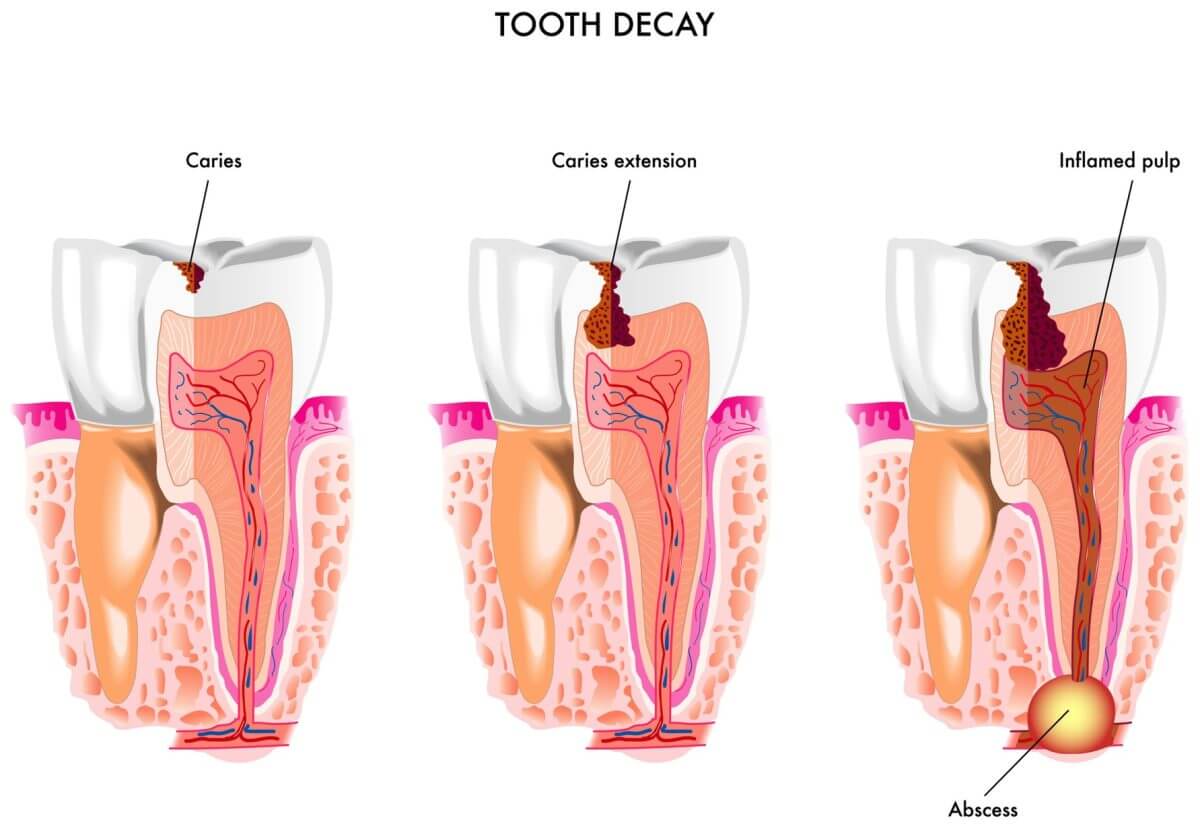
Pulpitis Symptoms
Common symptoms of pulpitis include:
– Persistent toothache, especially when consuming hot or cold beverages
– Increased tooth sensitivity to sweet foods
– Discomfort or pain when biting or chewing
– Occasional swelling around the affected tooth
Types of Pulpitis
Reversible Pulpitis
– This milder form occurs when the pulp is irritated but can heal with proper treatment. It is often caused by factors such as minor dental procedures, cavities, or trauma.
– Symptoms typically subside once the irritant is removed or the cavity is treated.
– Treatment generally involves removing the irritant and placing a filling, allowing the pulp to recover.
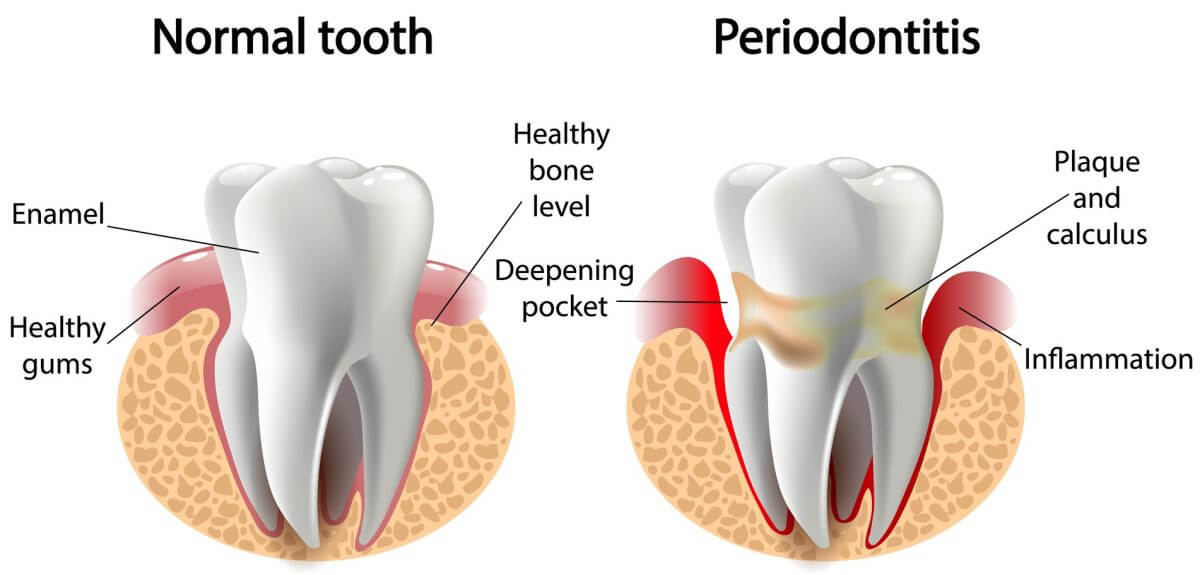
Irreversible Pulpitis
– In irreversible pulpitis, the damage to the pulp is extensive enough that it cannot heal on its own. Symptoms may be severe and include spontaneous pain.
– Treatment typically involves more complex procedures like root canal therapy or, in some cases, tooth extraction.
Chronic Hyperplastic Pulpitis
– Also known as “pulp polyp,” this is a rare form where the inflamed pulp tissue overgrows and protrudes from the decayed tooth.
– It generally occurs in teeth with large cavities and is more common in children and young adults.

Pulpitis Treatment
General Treatments
– For both types of pulpitis, the initial step involves alleviating pain and addressing infection or inflammation. This may include prescribing antibiotics if an infection is present and pain management strategies.
Reversible Pulpitis Treatment:
– Treatment focuses on preserving the tooth’s vitality by removing decay and placing a restorative tooth filling or crown. This often resolves the inflammation and restores tooth function.
Irreversible Pulpitis Treatment:
– Treatment options include root canal therapy, where the infected pulp is removed, and the tooth is sealed to prevent further infection. If the tooth is extensively damaged, extraction may be necessary.
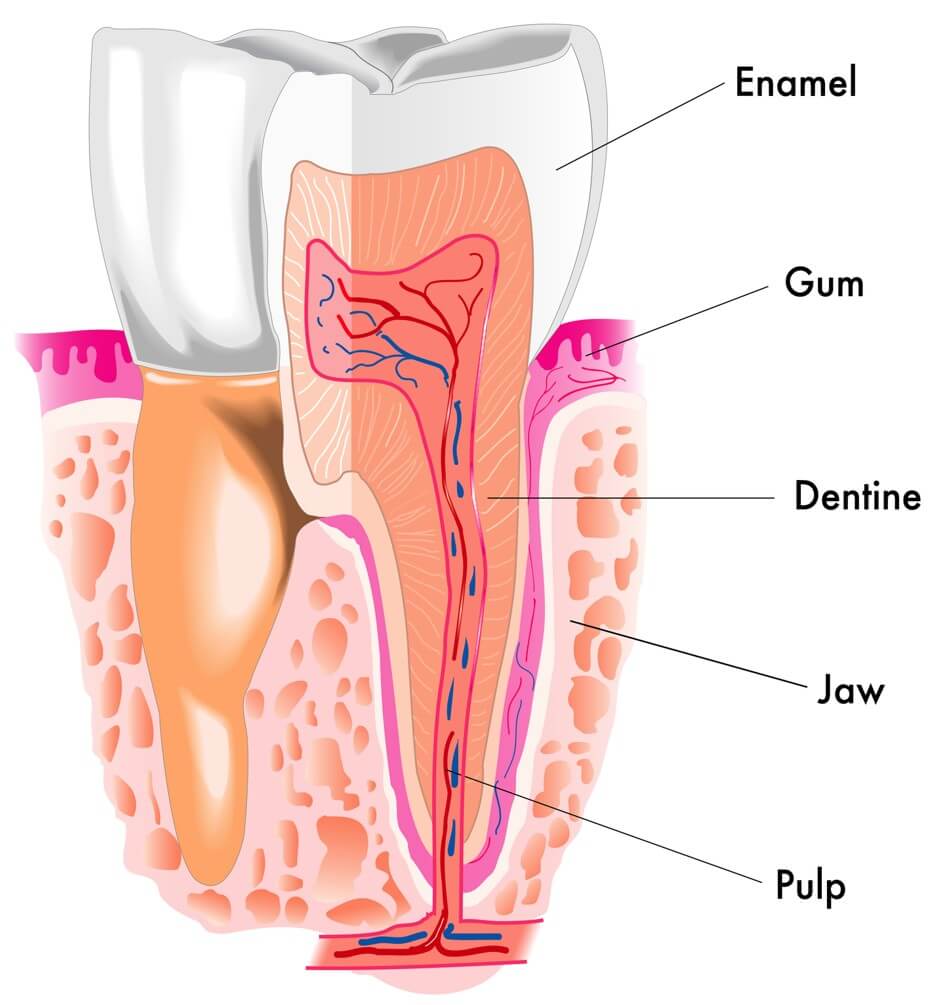
Reversible vs Irreversible Pulpitis Treatment Summary
Reversible pulpitis treatments aim to restore and maintain the pulp’s health, while irreversible treatments focus on eliminating the source of infection and protecting the tooth structure by removing the pulp.
Advanced Care Referrals
At Lakefront Family Dentistry, we are equipped to handle most cases of pulpitis directly. However, if a tooth requires more specialized care beyond the scope of what we can provide, Dr. Phillipe and Dr. Hauser will refer patients to a trusted specialist. This ensures all patients receive the best possible outcome for their dental health.
Advanced Restorative Options Post-Pulpitis Treatment
After addressing the immediate inflammation and infection associated with pulpitis, restoring the tooth’s structural integrity and aesthetic appearance is the next critical step.
At Lakefront Family Dentistry, we employ state-of-the-art materials and technology to ensure that each patient not only regains their oral health but also maintains the natural beauty of their smile.
White Tooth Fillings: Following treatment for reversible pulpitis, where the structure of the tooth remains largely intact, white fillings are often the preferred restoration method.
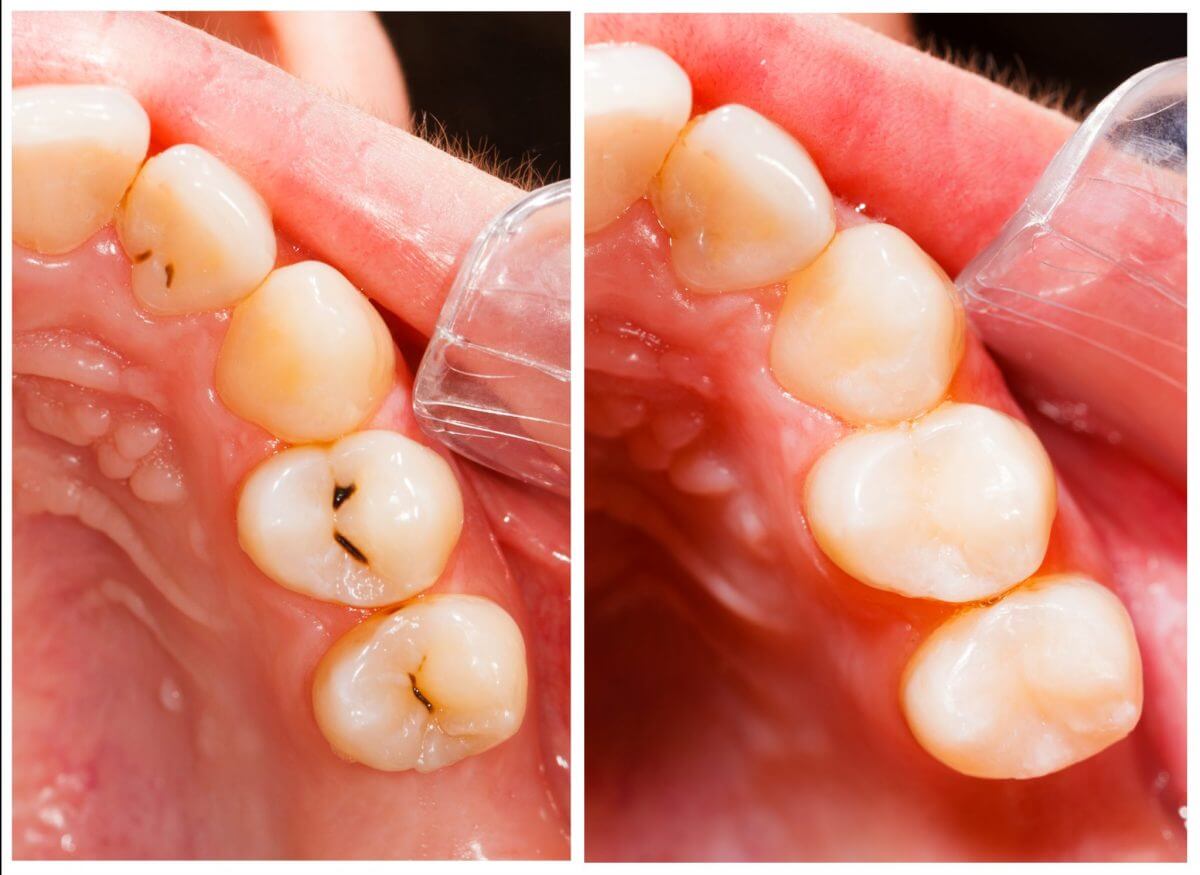
These fillings are crafted from a composite resin material that offers durability and resistance to fracture. The composite material can be precisely blended to match the color of the patient’s natural teeth, ensuring that the fillings are virtually indistinguishable from the surrounding tooth structure.
This cosmetic consideration is essential for maintaining a uniform, natural-looking smile while also restoring the functionality of the tooth.
Same-Day Porcelain Crowns: In cases of irreversible pulpitis where a root canal procedure is necessary, the structural integrity of the tooth might be compromised.
To protect and restore these teeth, Dr. Derek Hauser and Dr. Mark Phillipe utilize the advanced CEREC CAD/CAM Chairside System along with in-house milling machines. This technology allows for the design, creation, and placement of custom porcelain crowns within a single visit.
The CEREC system offers several advantages:
Precision and Customization: Digital impressions are used to create a detailed 3D model of the tooth, ensuring that the crown fits perfectly and meets the patient’s functional and aesthetic needs.
Durability: Porcelain is well-known for its strength and longevity, making it an excellent material for crowns. It resists staining better than composite resin and can withstand the forces of chewing, which is particularly important for back teeth.
Advanced Dental Technology and Convenience: Since everything is done in-house, patients do not need to wait for weeks as they would with traditional crowns. There’s no need for temporary crowns or multiple dental visits. The entire process—from tooth preparation to CEREC crown placement—can often be completed in just one appointment.

By integrating these advanced restorative techniques, Lakefront Family Dentistry not only treats the underlying dental issues like pulpitis but also ensures that patients leave with strong, aesthetically pleasing teeth.
This comprehensive approach to dental care underscores our commitment to restoring not just the health but also the confidence of our patients through beautiful smiles.
Dr. Mark Phillipe and Dr. Derek Hauser also make custom porcelain veneers in two to three visits in our office.
Pulpotomy
If a tooth becomes infected where the pulp needs to be removed to prevent further tooth decay, our dentists will do a pulpotomy. Taking great care of your oral health is the most important way of avoiding decay.
Ensuring Long-Term Dental Health
Following pulpitis treatment and the necessary restorative work, Dr. Phillipe and Dr. Hauser emphasize the importance of regular dental check-ups.
These visits allow for ongoing monitoring of the treated areas and the maintenance of oral health. Additionally, patients are advised on the best practices for home care to prevent future dental issues, including the recurrence of pulpitis.
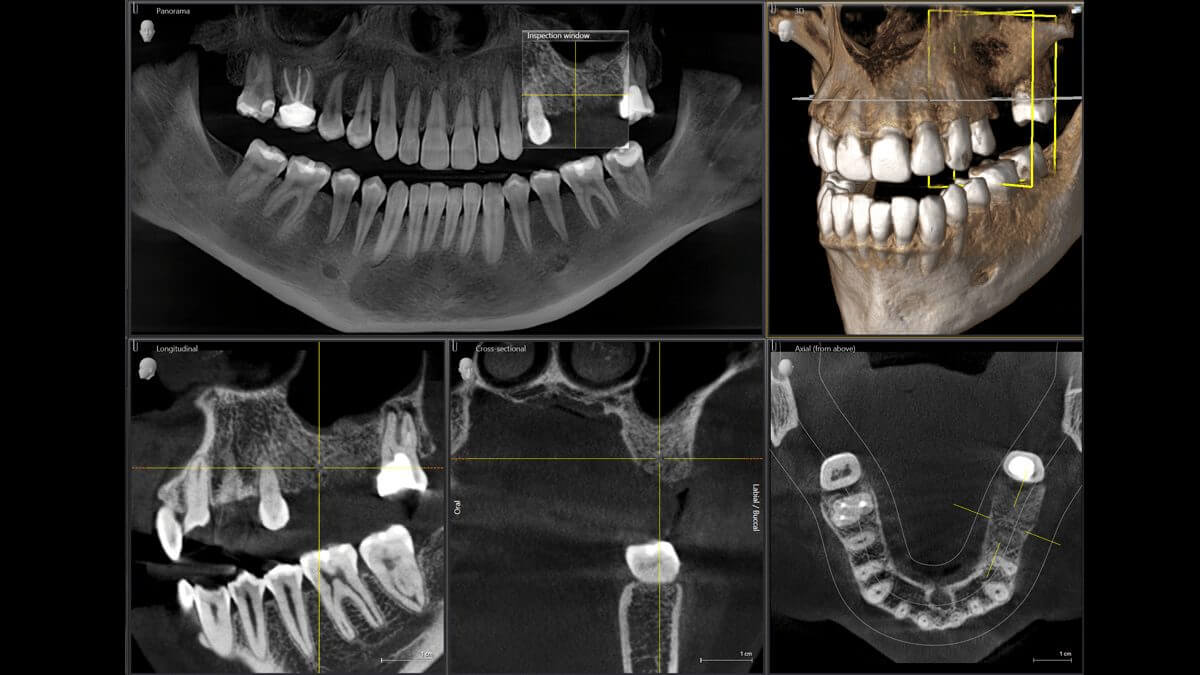
Preventive Measures and Recommendations
Preventing pulpitis involves maintaining good oral hygiene, including regular brushing and flossing, and avoiding excessive consumption of sugary or acidic foods. Regular dental check-ups twice per year are crucial since they allow early detection and treatment of conditions that could lead to pulpitis.
Request an Appointment with the Top Dentists in Riverside County
Understanding the types and symptoms of pulpitis and seeking timely treatment can significantly enhance dental health outcomes.
If you experience any symptoms of pulpitis, we encourage you to contact Lakefront Family Dentistry. Our team, led by Dr. Derek Hauser and Dr. Mark Phillipe, is here to provide effective treatment and, if necessary, guide you to specialized care.
Please request an appointment through our secure website or call Lakefront Family Dentistry directly on (951) 244-9495. Let us help you maintain a healthy, vibrant smile.






